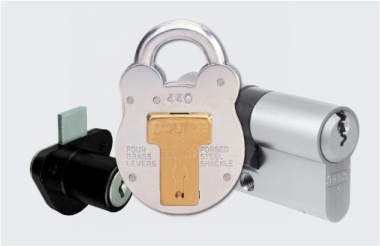What Should I Look For When Buying A Lock?
Unfortunately burglary and theft is far too common and wherever you live or wherever your business is located, it is rare that we will be confident enough to forego any form of door security. But equally, locks on internal doors are often only needed for privacy reasons, rather than security. So choosing which door lock to install can be a daunting prospect, and this guide is intended to pose the kind of questions you should be considering and ultimately this will help you make the right decision.
What to consider when choosing a door lock
There are a number of factors to consider when choosing a door lock, such as:
- Location of the property
- Location of the door (ie. internal or external)
- Type of door
- Structure and strength of door frame
- Who is using the door
- What level of security do you need? (does it need to be insurance rated)
It is likely that one or more of these factors will narrow down the options and leave you with a pretty straightforward choice. For example, if the door lock is for an external back door that you need regular access to, you would want it to be a keyed lock that someone can unlock from outside. It would be no good having a bolt lock that you can only open from inside the property. Similarly, a bathroom door in a family home doesn’t need a complex smart lock that is mobile app enabled, but if an external door is for a business where several employees are using the door on a regular basis, it might suit you to have a smart lock rather than a more conventional lock that requires lots of keys to be cut for it.
Practicality is a major factor when choosing the right lock type. If keys are often getting lost, then a smart lock allows the user to access the door with a mobile app, or a biometric function, or if you are often leaving the property carrying something, or in a hurry, then a rim cylinder/Yale lock might be suitable, because it locks the door automatically behind you.
To help you choose the right lock for your door, here is a brief rundown of the most popular types:
- Multi-point locking system – here a key-operated lock has multiple locking points on a door, which makes it very strong and protective when locked. These locks are popular on external doors of a domestic property, and the locks are enabled by lifting the handle and turning a key.
- Euro-lock cylinders – this is a very popular key-operated locking system where there is an additional casing around the cylinder, which provides added strength and security.
- Yale locks – also known as rim cylinders, these are surface mounted locks on one side of a door, which means the lock automatically engages when the door shuts. So you need a key to open it but not to lock it.
- 5-lever mortice sashlocks – these are also very popular types of lock which are embedded in a door and opened with a key.
- Smartlocks – these are increasingly popular types of locks which can be opened using a mobile app, a unique number, a fob/card, or a fingerprint or facial recognition (biometric). They often have other intelligent features and can be linked to access control, HR functions and data collection systems.
How to choose the right door lock
Access - so essentially, you should choose a key entry type of lock if you only need access from one side of the door.
Convenience – you should consider a smartlock if you need fast and convenient access, perhaps where lots of employees are arriving at the same time.
Practicality – how easy do you need access to be? Are people likely to lose keys or forget a unique number?
Security – how strong does a door lock need to be? In a domestic property a bathroom door lock doesn’t need high-strength security, you will generally know everyone in the home, and the lock is just for privacy. However, for an external door in a commercial business, you need a much higher level of security. Some insurers will insist that you have a five-lever mortice deadlock BS3621 fitted to all outside windows and doors as part of their home insurance policy conditions.
Strength – what type of door have you got and what condition is the door frame in? A new uPVC door probably won’t accommodate a new sashlock or a Yale lock, and will probably come with a multi-point lock pre-fitted.
Budget – you can find an affordable lock for any type of budget, but you do need to balance this against the risk level of the property. It is worth paying a little more for 100% peace of mind.
Door rating – most locks are sold with a specific door rating, which indicates how good the lock is. You can also check information, reviews and recommendations provided by the lock manufacturers.